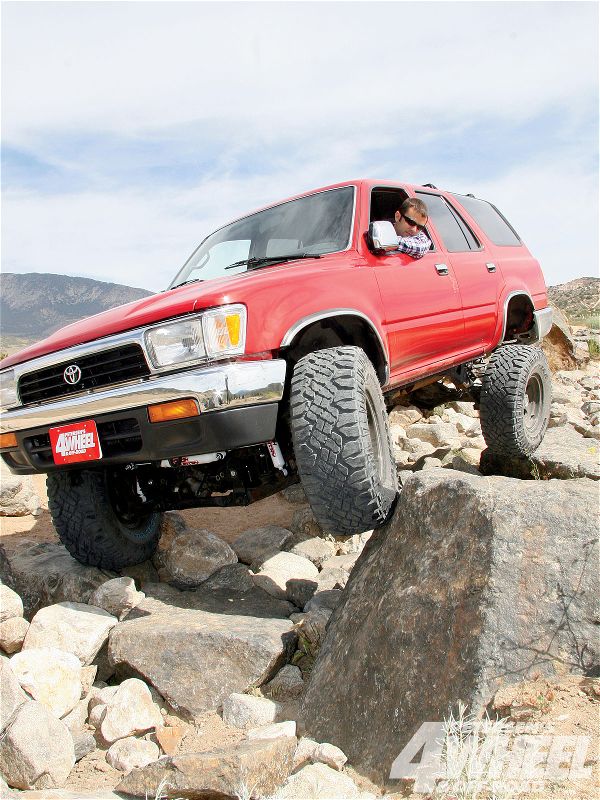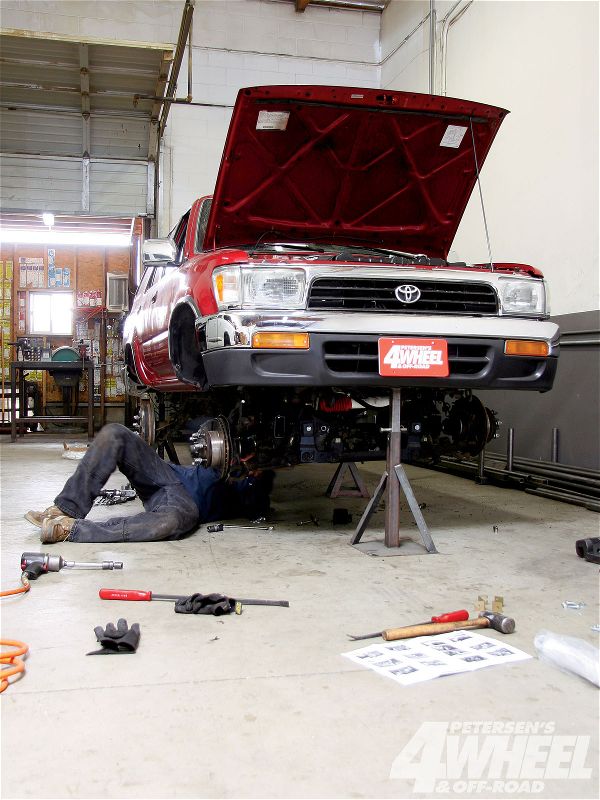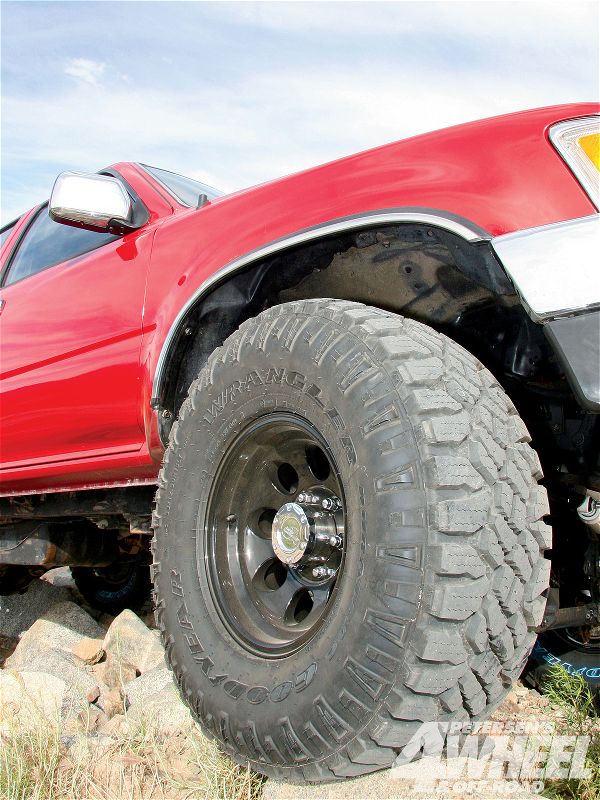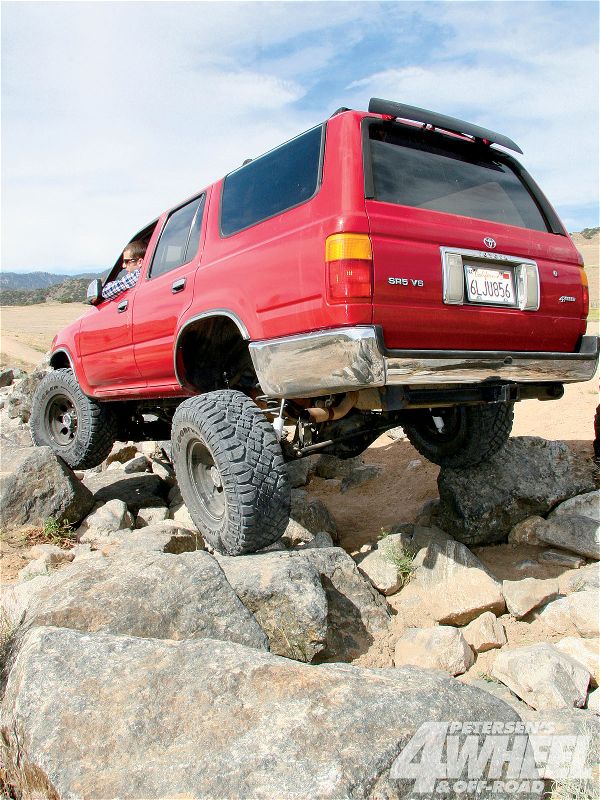
 Ali Mansour
Brand Manager, 4WD & Sport Utility
Ali Mansour
Brand Manager, 4WD & Sport Utility
IFS (independent front suspension) is here to stay. While we know that statement alone is enough to make many of you diehard solid-axle wheelers cringe, it's simply the truth. The reality is that IFS has lighter components, creates a smoother ride, and generally has better on-road characteristics than a traditional solid-front-axle. Unfortunately, what allows IFS to perform well on the road is usually what makes it fall short when the pavement ends. But it's not all bad.

In fact, we plan to prove that wheeling your basic IFS rig can be just as fun as any solid-axle wheeler. Using a '92 Toyota 4Runner equipped with a V-6, auto transmission, and 160K on the clock, we are ready to see just what IFS can do. The goal of this long-term build isn't to create some over-the-top desert racer or one-off custom show machine, but rather a competent entry-level wheeler that practically anyone can build.
Our '92 Toyota belongs to a friend who purchased it to fill his need for a weekend wheeler, family hauler, and long-distance explorer. Though the Ultimate Adventure might not be in the cards, a nice weekend wheeling excursion through the Rubicon Trail is right in line with our build plan.
To help us transform the 4Runner into a more trail-capable Toyota, we teamed up with the crew from SMP-Fabworks in Sylmar, California.
SMP is a shop that specializes in custom cages, bumpers, and Baja racers, but also opens its doors to almost all things 4x4. Given its years of building experience with both IFS and solid-axle rigs, SMP was the perfect place to get moving on our independent project.
For this installment we tossed on an easy-to-install and budget-friendly 5-inch lift kit from Rough Country Suspension Systems along with a new set of 33-inch Goodyear Dura-Trac tires. Be sure to keep your eyes peeled for future issues, where we'll update you on the 4Runner's progress and continue the build.
Garage Friendly
We admit that sometimes we get a little spoiled using two-post hydraulic car lifts. To give you a better account of how difficult or easy installing this IFS lift will be for shade-tree techs, we did it using only two floor jacks and a few tall jackstands. Our install provided us with two valuable pieces of information. One, yes, it can be installed by one wrench-savvy person in a day using only handtools and an impact gun. Two, boy, our backs get dirty a lot faster this way!

Pro Traction
Since this 4Runner will likely take just as many trips to the desert as it does to the grocery store, it needed tires that could handle the dirt and last on the blacktop. Our solution came in the form of a set of 33x12.50 Goodyear Dura-Tracs that we mounted on a set of heavy-duty 15x8 Pro Comp 8069 series wheels. So far the lightweight package has performed great over the rugged Southern California desert terrain, and they barely make a growl at highway speeds.

Toying Off-road
The '90-'95 Toyota 4Runners are a little sluggish from the factory, so we expected the worst when we bolted on the larger tires. To our surprise, there wasn't really a dramatic power drain. Admittedly we feel the 4Runner could use lower differential gears, but overall it powered through the trail and down the highway just fine. The ride is pretty soft, which we liked, and although the suspension travel isn't extreme, it works fine for us. Our main complaint is that there seems to be a bit of rear steer. This rear suspension issue is possibly due to the rear control arm angles and the soft shock valving. We'll investigate this more as we continue to wheel and learn more about what it takes to make an IFS rig last off road.
 PhotosView Slideshow
PhotosView Slideshow





